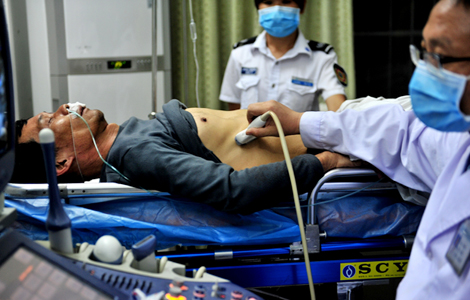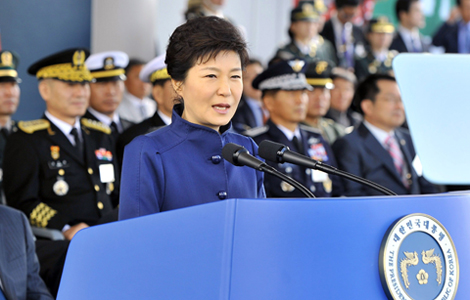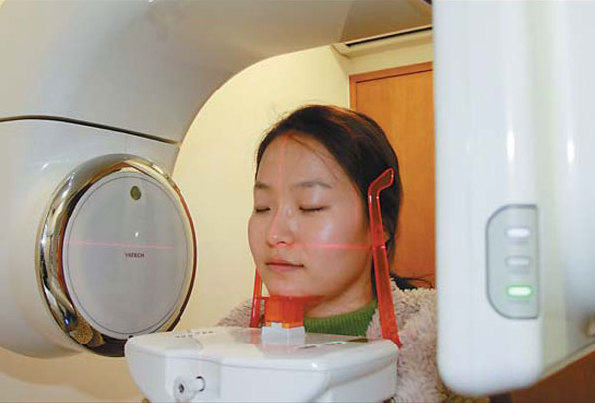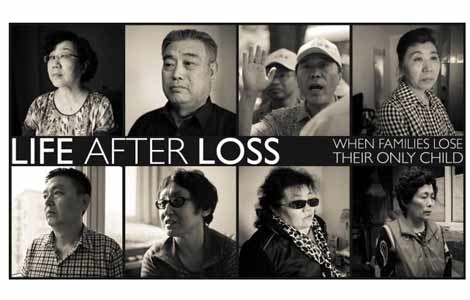Travel becomes passport to a new look
Updated: 2013-10-02 07:32
By He Na (China Daily)
|
||||||||
|
An X-ray checks a patient's facial bone structure before she undergoes plastic surgery in Seoul. Xinhua |
Before giving birth, Sun was highly confident and extroverted, but afterwards became a little depressed and didn't like talking or even going shopping with her friends, an activity she used to enjoy. When she went out, she walked with her head down.
Sun did not explain the reason for the change in her behavior to anyone, apart from her husband. It turned out that Sun's breasts - a little small before she gave birth - became much smaller after she breastfed her son.
Her husband said he didn't mind and loved her more than ever. But Sun said she wanted to undergo breast surgery in South Korea. Afraid that her symptoms may develop into deep depression, her husband gave his approval.
With the help of a Shanghai-based website that organizes plastic surgery and sightseeing for Chinese in South Korea, the operation was a success.
"The shape and feel of my breasts is pretty much the same as real ones. Even my husband says that I look better and I am more confident than before," she said.
In recent years increasing numbers of Chinese have opted for plastic surgery in South Korea to improve their appearance, significantly stimulating development of the country's plastic surgery tourism industry, a high-revenue earner each year.
Data from the Korea Health Industry Development Institute show the number of customers traveling to the country for medical-care tourism has risen steadily in recent years. The number of short-term customers (less than 15 days) rose to 150,000 in 2012, some 30,000 more than the year before. Customers from China led the way, followed by those from the United States, Japan, Russia and Mongolia.
"Medical-care tourism, which combines medical treatment such as plastic surgery and physical checkups with sightseeing, has injected new blood into the two industries, not only creating more jobs that stimulate our economy, but also cultivating more professionals and driving the development of related educational industries," said Kim Se-mann, executive director of the medical tourism department of the Korea Tourism Organization.
Why go to Korea?
Kim said about 31,000 Chinese entered South Korea on medical-care tourism visas in 2012, of which 62.9 percent were traveling for plastic surgery. This compares with only 4,700 in 2009.
Liu Ming, 28, who works for a real estate company in Sanming, a city in Fujian province, underwent a double eyelid operation in South Korea in June.
"Although it's much more expensive than the price I was quoted by large plastic surgery institutes in China, I still thought the money was well spent," she said.
"The surgery was perfect and after two months' recovery my new, large eyes look natural, pretty and bright, totally changing the impression I had on others before, when friends often joked that even if I opened my eyes to their widest they still thought I was sleepy."
China's plastic surgery industry has developed quickly in recent years and the country has a considerable number of plastic surgery institutes that customers can choose from. However, many people still prefer to travel to South Korea.
Jason Liu, manager of the South Korean department of www.6mchina.com, who travels between China and South Korea almost every month, said the reasons for this are proven technology, better service, South Korea's position in world fashion circles and the fact that it is near China.
Liu also said the increasing influence of Korean popular culture, such as the TV series Dae Jang Geum, popular songs like Gangnam Style and a batch of well-known singers, actors and actresses are other factors attracting increasing numbers of Chinese. In some plastic surgery hospitals in Seoul, the South Korean capital, more than 80 percent of the customers are Chinese.
Liu said prices for plastic surgery in South Korea are a little higher than those in China. But with Chinese consumers' increasing wealth, this is not a problem, as people care more about the results of the surgery, and safety.
There are many plastic surgery institutes in China, but the industry started relatively late and is still in the initial stage, with a long way to go.

 Impasse in Congress shuts down services
Impasse in Congress shuts down services
 Li, Serena cruise on, Venus out at China Open
Li, Serena cruise on, Venus out at China Open
 Search for fishermen continues
Search for fishermen continues
 Portrait of an amateur Waltz dancer
Portrait of an amateur Waltz dancer
 Honoring heroes at Tian'anmen Square
Honoring heroes at Tian'anmen Square
 14 fishermen rescued, 2 dead, 58 missing after typhoon
14 fishermen rescued, 2 dead, 58 missing after typhoon
 ROK urges deterrence against DPRK's nuke threats
ROK urges deterrence against DPRK's nuke threats
 A blooming success in Tian'anmen
A blooming success in Tian'anmen
Most Viewed
Editor's Picks

|

|

|

|

|

|
Today's Top News
Chinese tourists affected by US govt shutdown
Impasse in Congress shuts down services
US big 3 automakers sales slowdown
Market in antiques booms in Shanghai
Manufacturing shows positive growth
Beijing to issue air quality warnings
China's railways see record traffic
Search for fishermen continues
US Weekly

|

|









